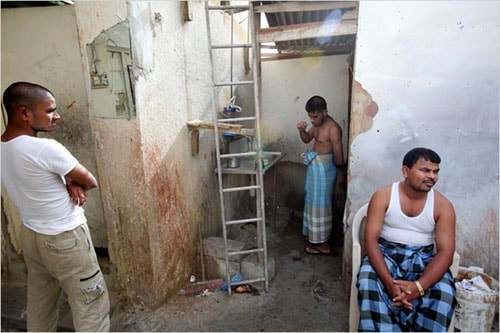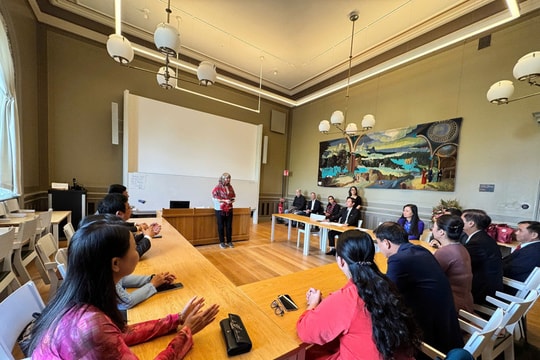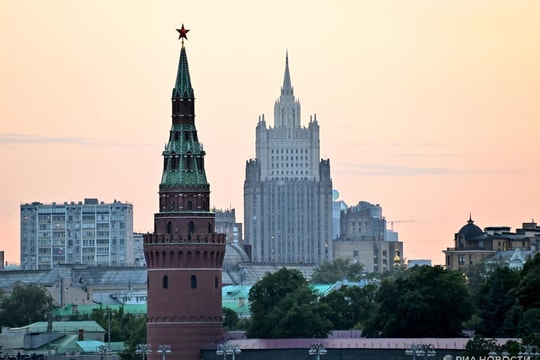Living in luxury, Qatari people still feel disadvantaged
Many Qataris feel treated unfairly despite enjoying a life of material abundance.
 |
A Lebanese immigrant salesman shows a car to a Qatari customer. Photo: New York Times |
From birth, every citizen of Qatar enjoys a rich life thanks to generous government subsidies.
With the world's third-largest oil and gas reserves, the Middle Eastern country could theoretically give each of its citizens $111,963 a year in 2016, according to estimates by the International Monetary Fund.
Qatari citizens do not have to pay for electricity or water, go to school for free and are hospitalized for free. The government takes care of everything.
Qatar's area is only 1/30 of Vietnam's, but when Qatari men get married, the government generously grants them more than 1,000 square meters of land and gives them low-interest loans from banks to build villas.
The unemployed will receive regular monthly benefits, enough to live comfortably. And the government will not force them to work if they think they "cannot find suitable jobs," according to the New York Times.
"After getting the elephant, want the ivory"
 |
Foreign workers in Qatar. Photo: New York Times |
According to World Factbook statistics, there are currently about2.2 million people live in Qatar, most of whom are immigrants fromIndia, Nepal,Philippines and Bangladesh. CThe indigenous Arab population makes up only 15% and is the most privileged.
However, cQataris continue to complain that they are an unfairly treated minority in society.
“Foreigners always get priority,” says Ali Khaled, a 23-year-old student who was given government funding to study in the UK.
"Companies think foreigners are better than Qataris,"Omar Ali,aKhaled's surname,not graduated from high school and working for an electric company, said, "The place I work has 300 employees but only four or five Qataris. Every time I walk into the company, I feel like I'm in India."
"I've been working there for three years and I'm still not good at my job. I just sit there drinking tea and reading newspapers," Ali confided.
Many Qataris believe that the best-paying jobs in areas such as finance, media and key industries go to foreigners.
Ahmed J. Abdul-Rahman Abdul-Malik, a news presenter, was angry that he was not hired by Al Jazeera.
"I met some friends last night. We were joking, all of us unemployed," Abdul-Malik said, reaching for the door of his new Mercedes. The streetlights illuminated his diamond-encrusted wristwatch.
Moza al-Malki, a former psychotherapist, is now unemployed after her company hired an Indian manager to replace her. At home, al-Malki enjoys shopping and always brings along a Filipino maid to carry her groceries.
“Qatari people are too pampered,” Mohammed Saffarini, an Arab who is the research director at the Qatar Science and Technology Park, bluntly commented.Saffarini believes that Qataris lack skills, qualifications and degrees, making it difficult to compete in the labor market.
Dr. Momtaz Wassef, director of biomedical research at the Supreme Council of Health, left his job in the United States after accepting an invitation from the Qatari government. But after several years of living and working here, he and his wife felt disappointed.
“It's all just superficial,” says Dr. Momtaz Wassef. “They(Qatari people) never admit they are wrong. They always say they are the best in the world," Dr. Wassef said, adding that he and his wife will soon return to the United States.
According to VNE
| RELATED NEWS |
|---|






.jpg)
.jpg)
